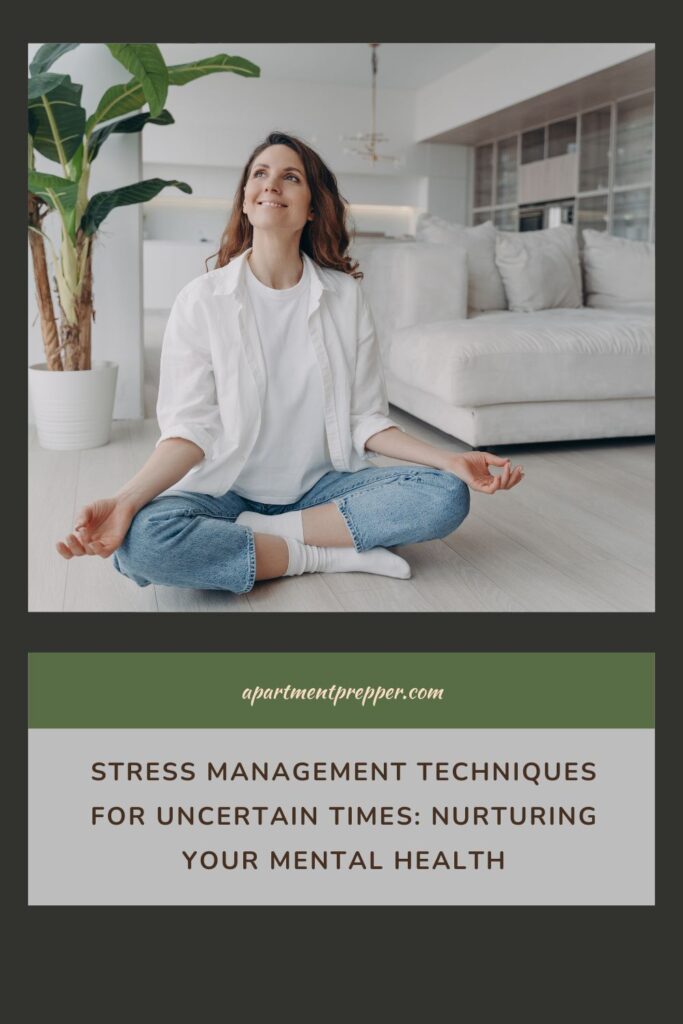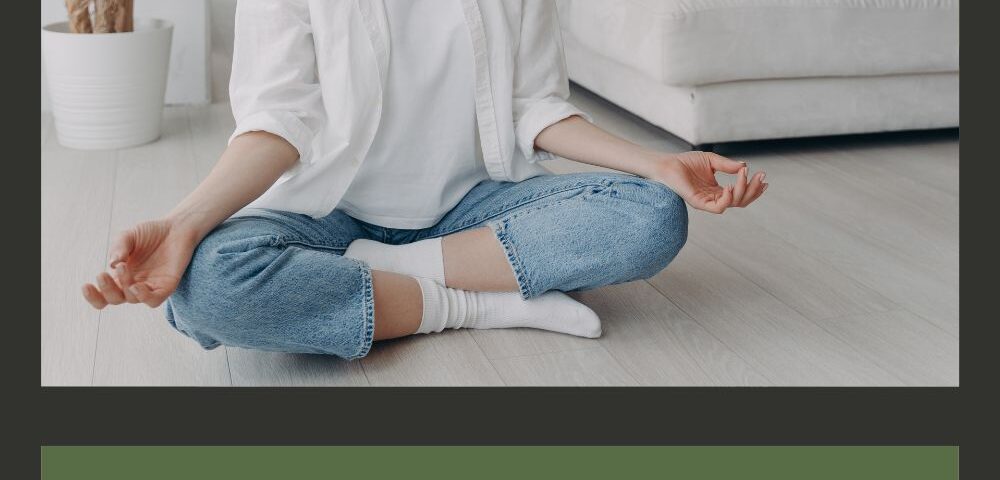Written by Bernie Carr
With elections just a few weeks away, Americans are feeling more stressed – it’s so prevalent, there’s even a term for it: “election anxiety.” According to a poll by the American Psychiatric Association, Americans are more stressed this year than previous years.
In 2024, 43% of adults say they feel more anxious than they did the previous year, up from 37% in 2023 and 32% in 2022. Adults are particularly anxious about current events (70%) — especially the economy (77%), the 2024 U.S. election (73%), and gun violence (69%).
Source: American Psychiatry Association
In times of uncertainty, stress can quickly become overwhelming. Whether dealing with global crises, personal challenges, or simply the unpredictability of life, managing stress is essential to maintaining both mental and physical health. Taking proactive steps to nurture your mental well-being can help you stay resilient, calm, and focused during difficult times.
In this article, we will explore effective stress management techniques that can help you maintain a sense of balance, even when the world feels uncertain. By incorporating these strategies into your daily life, you can improve your emotional health and build resilience to face challenges with a clearer mind.
1. Practice Mindfulness and Meditation
One of the most effective ways to manage stress is through mindfulness and meditation. These practices help ground you in the present moment, reducing anxiety about future uncertainties.
Mindfulness involves being fully aware of your thoughts, feelings, and surroundings without judgment. A simple mindfulness technique is to focus on your breathing. By paying attention to each inhale and exhale, you can calm your mind and body.
Meditation is another powerful tool that promotes relaxation and emotional clarity. Set aside a few minutes each day to meditate, even if it’s just for 5 to 10 minutes. You can use guided meditations or apps to help you focus, or simply sit quietly, breathing deeply, and letting go of any tension or worry. Regular practice can help reduce stress and increase mental clarity.
2. Stay Physically Active
Exercise is not only beneficial for your physical health but also your mental well-being. Engaging in regular physical activity helps your body release endorphins, the “feel-good” hormones that can alleviate stress and improve your mood.
Whether it’s going for a walk, doing yoga, or taking up a more intense workout, finding ways to stay active can make a big difference in how you handle stress. During times of uncertainty, even small amounts of movement can help reduce anxiety. Aim for at least 30 minutes of moderate exercise most days of the week, and find activities you enjoy to make it sustainable.
3. Connect with Others
Social connections are vital to managing stress and maintaining mental health, especially during uncertain times. Humans are naturally social creatures, and isolation can intensify feelings of anxiety and stress. Reach out to friends, family, or support groups, even if it’s through virtual means.
Sharing your thoughts and feelings with trusted individuals can provide emotional relief and offer new perspectives. Sometimes, just talking to someone who understands what you’re going through can lift the weight of stress. If you’re unable to meet in person, make use of technology to stay connected through video calls, phone conversations, or social media.
4. Limit Media Consumption
While staying informed is important, constant exposure to negative news can heighten stress and anxiety. The 24-hour news cycle and social media can be overwhelming, especially during times of crisis or uncertainty. Consider setting boundaries for your media consumption to protect your mental health.
Try limiting your news intake to a specific time of day and avoid checking your phone or newsfeeds right before bed. Instead, focus on reading reliable sources, and stay away from sensationalized headlines or unverified information. By managing your media consumption, you can reduce anxiety and create space for more positive and relaxing activities.
5. Practice Gratitude
Gratitude is a powerful emotion that can counteract feelings of fear and anxiety. When you focus on the things you are thankful for, you shift your attention away from the stressors in your life. Practicing gratitude doesn’t mean ignoring challenges, but it helps you maintain a more balanced perspective.
One simple way to practice gratitude is by keeping a gratitude journal. Each day, write down three to five things you’re grateful for. These can be small things, such as a beautiful sunset, a kind gesture, or having food on the table. Regularly reflecting on the positives in your life can improve your mood, reduce stress, and foster a sense of contentment even in uncertain times.
6. Establish a Routine
Creating structure in your day can provide a sense of control during uncertain times. A routine can offer stability and predictability, reducing the chaos that uncertainty often brings. Start by setting regular wake-up and bedtimes, scheduling time for work or chores, and carving out moments for relaxation and self-care.
Having a routine doesn’t mean being rigid—it’s important to allow for flexibility—but it does provide a foundation that helps you navigate your day with more confidence and less stress. Whether it’s a morning coffee ritual, a workout schedule, or a nightly wind-down routine, these small habits can offer comfort and reduce anxiety.
7. Prioritize Sleep
Sleep is critical to managing stress, yet it’s often one of the first things affected when we’re feeling anxious or uncertain. Lack of sleep can worsen stress levels, impair cognitive function, and affect emotional regulation.
To promote better sleep, establish a calming bedtime routine. This could include turning off screens an hour before bed, reading a book, meditating, or practicing deep breathing exercises. Ensuring your bedroom environment is conducive to rest—cool, dark, and quiet—can also make a big difference. Aim for 7-9 hours of quality sleep each night to help your body and mind recharge.
8. Engage in Creative Activities
Creative outlets can be incredibly therapeutic during times of stress. Whether it’s drawing, painting, writing, playing music, or crafting, engaging in creative activities allows your mind to relax and focus on something positive.
Creativity can serve as an emotional release, helping to reduce feelings of anxiety and promoting a sense of accomplishment. Even if you’re not an artist, exploring creative hobbies is a great way to express yourself and distract your mind from stressors.
Conclusion
Managing stress during uncertain times requires conscious effort and self-care. By incorporating mindfulness, physical activity, social connections, and creative outlets into your routine, you can build resilience and protect your mental health. Remember to focus on what you can control, and take things one day at a time. With the right strategies, you can navigate uncertainty with greater ease and confidence, nurturing your mental well-being along the way.
We are an affiliate of Amazon.com, which means we received a small commission if you click through one of our Amazon links when you shop, at totally no cost to you. This helps keep the lights on at the blog. Thanks!
About the author
Bernie Carr is the founder of Apartment Prepper. She has written several books including the best-selling Prepper’s Pocket Guide, Jake and Miller’s Big Adventure, The Penny-Pinching Prepper and How to Prepare for Most Emergencies on a $50 a Month Budget. Bernie’s latest e-book, FRUGAL DIY has just been released on Amazon. Her work appears in sites such as the Allstate Blog and Clark.com, as well as print magazines such as Backwoods Survival Guide and Prepper Survival Guide. She has been featured in national publications such as Fox Business and Popular Mechanics. Learn more about Bernie here.
FB: https://www.facebook.com/apartmentprepper
Instagram: https://www.instagram.com/apartmentpreppers/
Twitter: https://twitter.com/AptPrepper
YouTube: https://www.youtube.com/channel/UC7vOtdbo-wiBeBxD6puCr1Q
Patreon: https://patreon.com/apartmentprepper
Pinterest: https://www.pinterest.com/aptprepper/
Today’s societal climate not supportive of prepping. With your help, we can keep bringing you content that is often suppressed. Help keep Apartment Prepper alive.
Join me on Patreon for ad-free content.

Or Help out via Paypal



